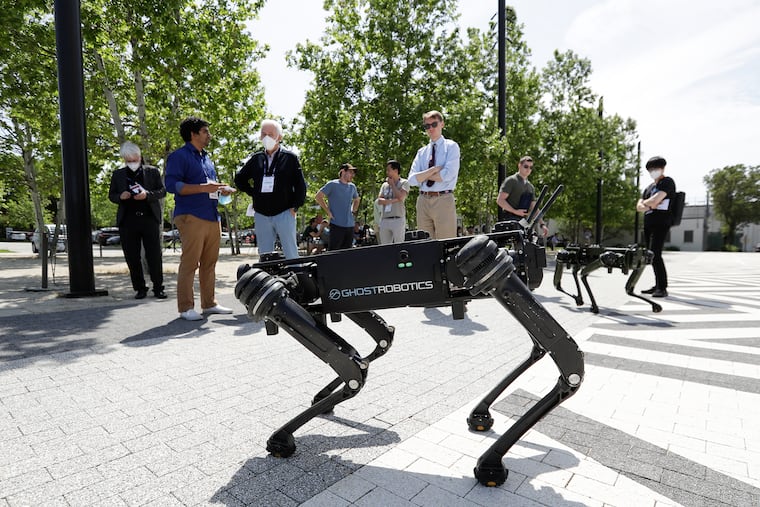Pennsylvania lags in innovation-based jobs despite having all ingredients for success, report finds
A new Brookings Institute report recommends policies that the next governor should adapt to promote innovation, tech transfer, and advanced industry jobs.

Pennsylvania is uniquely positioned to be a leader in high-tech, high-paying jobs but lags behind the national average in “advanced industry” job growth, a new report found.
Researchers from the Brookings Institute, a think tank based in Washington, found that despite having “powerhouse universities,” “breakout companies,” and “diversity of talent,” Pennsylvania is performing worse than it should in creating innovation-based jobs. Advanced industry jobs here grew by nearly 11% between 2010 and 2019 — 8 points less than the national sector.
The state has seen a modest increase in aerospace, medical supplies, and basic chemical manufacturing jobs in recent years. Between 2015 and 2021, the overall number of jobs in semiconductor and electric component manufacturing and medical and diagnostic labs has declined. Among the few sizable industries that increased jobs in a significant way was scientific research.
“Pennsylvania does have a history of strong policy in this space,” said Mark Muro, a senior fellow at the Brookings metro program. “Our big criticism is the state has drifted away from that.”
The report, which was published Thursday, provides policy recommendations — such as funding “innovation hubs” to support firms in large metro areas and creating competitive grunts for entrepreneurship outside of them — for the next governor to capitalize on the state’s assets that are conducive to innovation-based growth.
Pennsylvania’s largest academic institutions are advancing some of the most important innovations of our time, Muro said. For instance, University of Pennsylvania is leading gene therapy research, and Carnegie Mellon University has deep experience with robotics technology. The challenge, Muro said, is turning that technology into independent businesses that can offer high paying jobs and contribute to the local economy.
States have an incentive to support this process of “tech transfer,” but the Brookings report found that Pennsylvania does little to support the process. In fiscal year 2022, Pennsylvania invested $45 million in programs that foster innovation and help new firms secure capital through grants. That’s about two-thirds lower than it was before the Great Recession.
Per capita, the state invests a fifth what Ohio spends on “tech transfer,” activities to help businesses develop and adopt new ideas.
“The challenges are outside the walls of universities, for the most part,” Muro said.
All these challenges contribute to inequities. Most of new innovation-based firms started in Philadelphia, Pittsburgh and State College. Only 24% were outside those areas, in more rural parts of the state.
Investment in the innovation economy can also help address some of the inequities in entrepreneurship on the basis of race on gender. Women account for 51% of the population, but just 19% of employers in Pennsylvania. Black and Hispanic business owners account for 1% each of all firms with employees, but 8% and 11% of the population respectively. There are also large disparities in who gets advance degrees in STEM — science, technology, engineering, and math — fields.
With a deeper commitment from the next governor, Pennsylvania could foster more innovation-based growth, the Brookings researchers said.
The first step is to talk about it. “It really is about committing to innovation,” Muro said.
The researchers noted past commitments such as in 1982, when Pennsylvania established Ben Franklin Technology Partners, a state-backed investment program to help new start-ups.
They recommend infusing resources to the largest innovation clusters that already exist in areas such as Philadelphia, Pittsburgh, State College, and Lehigh Valley. In parallel, it suggests funding bottom up economic development in 20 regions outside of those large hubs.
The report also recommends bolstering programs that fund entrepreneurship among under represented groups and promote inclusion in STEM education. They also suggest exploring partnerships with industry to ensure child care and other services that traditionally left some workers out of competitive jobs in advanced industry.
Without these policies, the researchers argue, Pennsylvania will put itself on a path to exacerbate the inequities that already exist.
“Innovation often if not managed and nurtured, leads to bad outcomes,” Muro said.